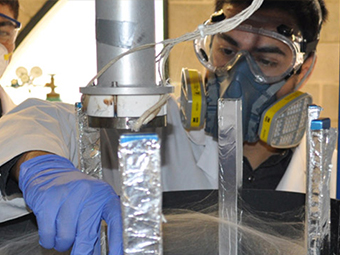Document Type
Conference Proceeding
Publication Date
8-31-2021
Abstract
Cell tower locations are not publicly available due to business interests of wireless providers. Very often wireless providers provide exaggerated coverage maps that may mislead the public. In addition to providing a neutral check on the coverage maps, prediction of cell tower locations hosting multiple operators’ access nodes could also be helpful in disaster communications and public safety in general. The localization of the disaster-affected towers can be very conducive to respond and reach to the victims. Further, victims’ devices could utilize this knowledge to initiate device-to-device (D2D) or unmanned aerial vehicular (UAV) communications as alternatives to the damaged cellular infrastructure. Publicly available crowdsourced cell (base station) locations and FCC’s sites can be used to predict the cell tower/site locations in the United States. In this work, we utilized a weighted k-means algorithm to predict cell tower locations from OpenCellid crowdsourced dataset and implemented a mapping algorithm to locate nearest physical towers. We map the predicted towers to two different sources of physical towers. Our comparison shows a significant accuracy in predicting tower locations regardless of sources of physical towers. The technique can be used to predict the tower locations in other countries as well.
Recommended Citation
M. Rahman, M. A. Hossain and M. Yuksel, "Multi-Operator Cell Tower Locations Prediction from Crowdsourced Data," 2021 International Conference on Computer Communications and Networks (ICCCN), 2021, pp. 1-9, doi: 10.1109/ICCCN52240.2021.9522192.
Publication Title
2021 International Conference on Computer Communications and Networks (ICCCN)
DOI
10.1109/ICCCN52240.2021.9522192



Comments
© 2021 IEEE. Personal use of this material is permitted. Permission from IEEE must be obtained for all other uses, in any current or future media, including reprinting/republishing this material for advertising or promotional purposes, creating new collective works, for resale or redistribution to servers or lists, or reuse of any copyrighted component of this work in other works.